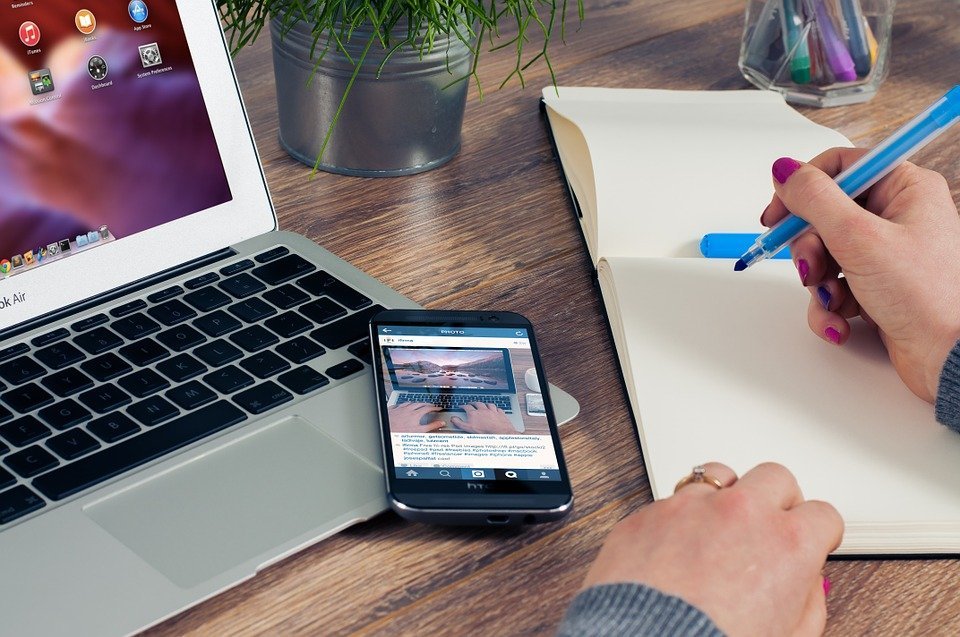Minimalism is not only practiced at home because it can also be practiced in the workplace. Most people have bought into the belief that to be able to be productive, you need to work all the hours under the sun. People who believe in this philosophy are those who get up at the crack of dawn to get to their office super-early and start working. And then when lunchtime comes, they are the ones who choose to skip eating or eat at their desks so they can continue working. And when people begin to leave the office at the end of the day, they are the ones who stay late while trying in vain to finish all of their tasks and projects.
For a few months of working like this, you might feel proud of yourself and you might be excited with what you believe you are achieving. However, as time goes by, you will eventually realize that you are not as productive as you think and that you are actually struggling to keep up the hectic pace. If you do not make some urgent changes with this kind of routine, then it’s likely you will be burnt out within a year.
If you’re one of the people who are working hard like this but you can’t still see yourself being productive, maybe the minimalist approach will work for you. To help you out, we are going to give you different ways on how minimalism can boost your work productivity.
Minimalism and Productivity
Before we give you the different ways on how minimalism can boost productivity, let us understand first the connection between minimalism and productivity. These two have a definite connection. If you want to become productive in a minimalist way, it means that you have to perform a task in as simple a way as possible.
For example, you can devise a way to deal with your emails efficiently. If you have lots of tasks, you need to learn to prioritize important ones over those that can be scrapped. And you can also develop the ability to focus on a task at hand 100%. Remember that the goal of minimalism is making your work easier and more productive.
When you always find yourself running out of time at work, what you need to do is step back and try to find ways to make your workload easier to deal with. Simplifying each of the tasks you have can lead to significant time savings. This is what makes minimalism and productivity essentially linked.
Best Ways Minimalism Can Boost Your Work Productivity
Here are some of the best ways to introduce a minimalistic approach to your work. These will definitely help you become more productive at work in no time.
1. Create a To-Do List
When you begin your day at work, start it by creating a to-do list. You can do this either on a paper or an app in your computer or phone. This task only takes a few minutes. What you need to do is list down everything you would like to do in the day ahead. This will enable you to oversee your thoughts and help plan your day as well.
2. Pinpoint Important Tasks
When you finished creating a to-do list, the next thing to do is review it and pinpoint which are the important ones that are needed to be finished within the day. Once you identify them, mark them as very important tasks.
3. Remove Unimportant Tasks
After identifying important tasks, you should also identify and remove tasks that you listed which you don’t really need to do. For example, if there are several meetings on your list, decide if they are all really necessary. If you can look at your list with a minimalist mindset, you will surely be able to remove unnecessary tasks from your list.
4. Focus and Setback Distractions
If you want to be a successful minimalist at work, you need to learn how to develop laser focus. This means that you need to learn to avoid distractions such as loud conversations from your officemates. When you have a powerful mental focus, distractions won’t be able to distract you no matter what they are.
5. Make Your Tasks Your Daily Habits
Daily habits are incredibly powerful because they can break down complex tasks and turn them into small daily treats. For example, if your task is to clean the outside of the building every week, that task may take you about an hour to finish. Instead of doing that, you can create a daily routine of cleaning a part of the outside every day for 10 minutes. That way, it will be easier and more enjoyable to finish compared to doing it for an hour. And if you make your tasks a habit, there’s no longer a need to motivate yourself to finish it.
6. Stretch Your Time
Yes, it’s possible to stretch your time. For example, your boss asked you to create a PowerPoint presentation and you need to finish it in three hours. If you’re like the usual people at work, you will start the task and finish it somewhere around the three-hour deadline. But if you’re a minimalist, you can make it a goal to finish it in just 90 minutes. That is how you will be able to stretch your time at work. You need to give yourself less time to complete your tasks.
7. The Pareto Principle
You may not be aware of this but you should. It is like the 80/20 rule which states that just 20 percent of our efforts will lead to 80 percent of our results. But when you look at it from the opposite perspective, 80 percent of our efforts will lead to just 20 percent of our results. Therefore, you need to be aware of the 20 percent of actions that are producing most of your results at work. Once you’re aware of them, focus on performing them, and your productivity will skyrocket.
8. Take Breaks
When you have lots of things to do at work, it is tempting to skip breaks and sometimes even lunch but you shouldn’t do this. According to research, people who take regular breaks at work are actually more productive compared to those who don’t. Based on studies, taking breaks can help people focus more, remember information, and reevaluate their goals. Therefore, take regular breaks at work. You will be able to see an immediate boost to your productivity when you do this.
These are some of the best ways minimalism can boost work productivity. If you’re aiming to be more productive at work, we hope these will be able to help you achieve your goals. If you want to know more about minimalism, you can also read our post on Introduction to Minimalism for more information.


